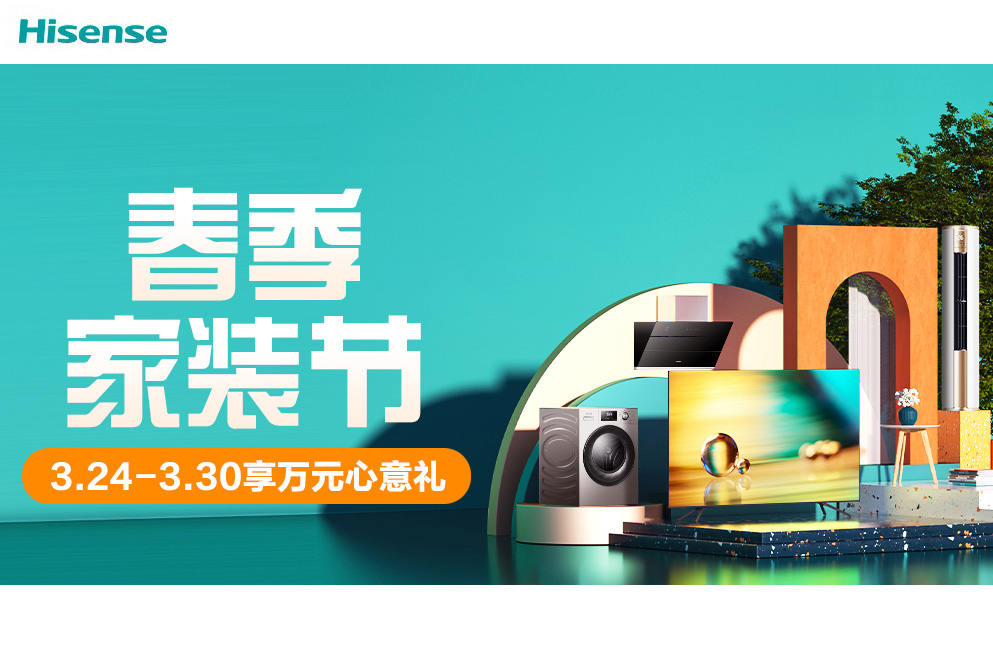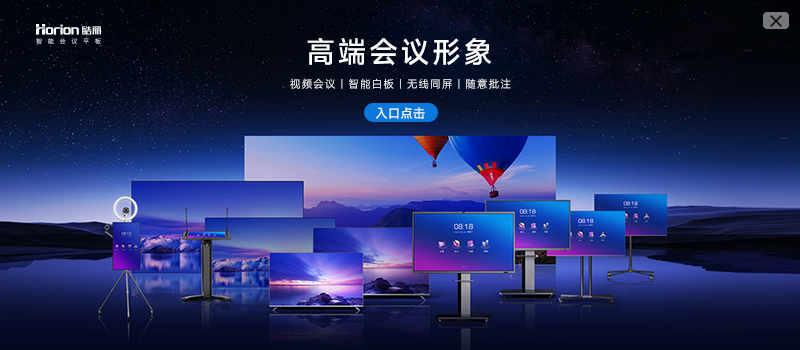In 2021, when Xiaomi officially announced to build a car, the Apple Titan project (Apple Auto) had been going on silently for seven years; Huawei has just launched the first full car Celes SF5 in conjunction with Celes. The year before the official announcement of Xiaomi to build the car, the world's second and third smartphone shipments were Apple and Huawei, respectively, and Xiaomi was fourth. Two leading technology companies in the industry have entered into new energy vehicles. The consensus in the industry is that "smart cars are computers with four wheels". Smart cars are an indispensable part of mobile ecology. For Xiaomi at that time, it seems that car building should not be a problem. When should we build a car. 
Three years later, in 2024, Xiaomi Automobile will be launched. However, it failed to catch up with the popularity of smart phones as it did 14 years ago. Today's new energy vehicle market is more like a smart phone in 2014-2016: every brand can not escape the price war, and new brands whose sales have lagged behind are beginning to be eliminated. The "cost performance" that Xiaomi relies on has already been carried forward by other car enterprises. The greater uncertainty comes from the withdrawal of peers. Three years ago, smart cars were widely regarded as a part of the mobile smart ecosystem and a product that smart phone manufacturers could not ignore. Therefore, Apple and Huawei chose to bet early. Although Xiaomi came late, he barely kept up. But now, Apple has chosen to give up making cars, and Xiaomi has no reference. Just as Apple Vision Pro encouraged the AR/VR/MR industry, Apple has given up making cars and cast a shadow on the once hot "intelligent ecological unity". Now, Xiaomi is also in prison - its revenue has declined for two consecutive years. Both revenue and profit are under pressure, and overseas market declines On March 19, Xiaomi released its 2023 annual financial report, which shows that its revenue in 2023 will be 271 billion yuan, down 3.2% year on year, and the revenue will decline for two consecutive years; The adjusted net profit was 19.3 billion yuan, up 126.3% year on year. The high growth of net profit was partly due to the low base of the previous year. In 2022, the total revenue of millet will be 280 billion yuan, down 14.7% year on year; The adjusted net profit was 8.5 billion yuan, down 61.4% year on year - the first fiscal year in which Xiaomi's revenue and profit both declined since its listing in 2018. Therefore, although the net profit growth rate of Xiaomi in 2023 is considerable, there is still a big gap compared with the net profit of 22 billion yuan in 2021. 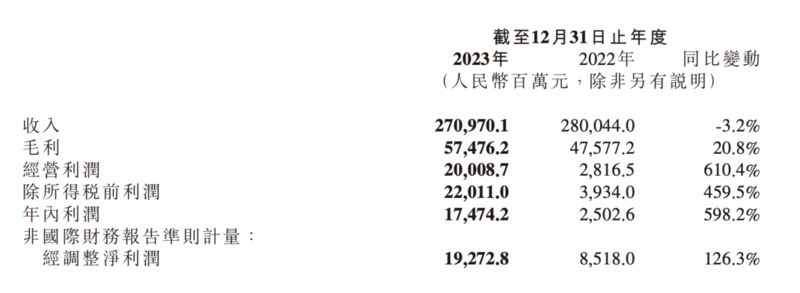
The overseas market, which has supported half of Xiaomi's country, is also facing downside risks. In 2023, Xiaomi's overseas revenue will reach 121.8 billion yuan, a year-on-year decline of 11.6%, higher than the overall revenue decline; The proportion of overseas revenue in total revenue also decreased from 49.2% of the previous year to 44.9%. The main reason may come from the Indian market. According to IDC data, in 2023, Xiaomi's smartphone shipments in India declined by 29.6% year on year. The good news is that Xiaomi has achieved good results in the high-end market. Xiaomi said in its financial report that according to third-party data, in 2023, Xiaomi will account for 16.9% of the smartphone market in the 4000 – 6000 price range in mainland China, up 9.2 percentage points year on year; In the fourth quarter of 2023, the sales of smart phones in the price range of 4000 – 6000 yuan ranked first, with a market share of 28.2%. In terms of price, in 2023, the average smartphone selling price (ASP) of Xiaomi in mainland China will increase by more than 19% year on year, a record high. However, from a global perspective, Xiaomi mobile phones are still trapped in the "cost performance ratio". The ASP of each mobile phone dropped from 1111.3 yuan in 2022 to 1081.7 yuan last year. This means that Xiaomi still focuses on low prices in overseas markets, and even the high-end Chinese market has not offset the erosion of overseas markets. As of December 31, 2023, Xiaomi's cash reserve was 136.3 billion yuan, a record high, which can be regarded as a reassurance to Xiaomi in various declines. On the same day that the annual report was released, Lei Jun said on his microblog that the Xiaomi Automobile Factory was officially unveiled. Just as the two companies undertake in terms of time, Xiaomi Automobile also bears the responsibility of bringing Xiaomi back to growth. 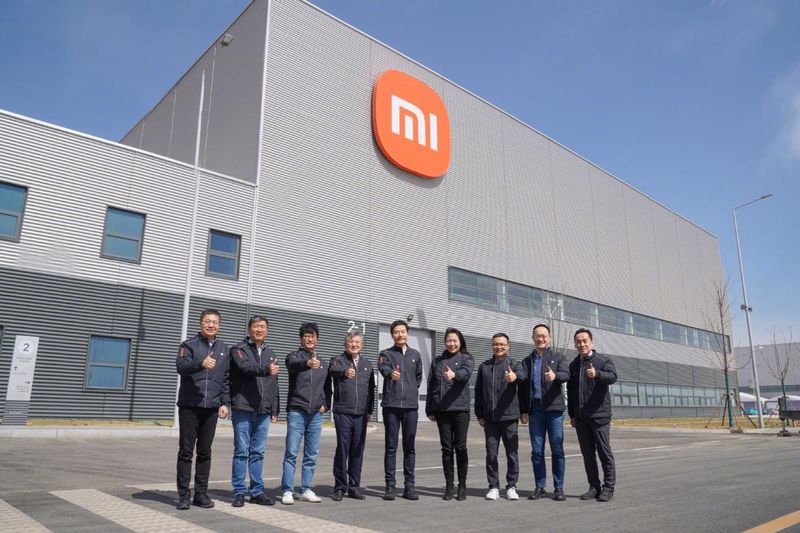
However, the reality is that Xiaomi Auto, which has not yet been listed, is facing the strangulation of its peers, and "Apple gave up building cars after investing 10 billion dollars" makes Xiaomi Auto even more embarrassed - what even Apple can't do, how Xiaomi should do. For Xiaomi today, there are two questions: Why does Xiaomi have to build a car? Why do consumers or rice noodles need Xiaomi cars? Xiaomi needs a car For Xiaomi three years ago, it is not difficult to answer why he built cars. As Apple and Huawei entered the market, smart cars are generally considered as the next important smart device after smart phones. The concept of "smart ecology" has mobile phone manufacturers flocking to smart cars, just like the "ecological counter" proposed by Jia Yueting, the former CEO of LeEco. Apple has the most complete system under its own control. Extending the mobile ecosystem to smart cars can not only expand Apple's ecosystem, but also enhance its comprehensive competitiveness. Other mobile phone manufacturers will face a deeper moat when competing with Apple. Xiaomi is one of the earliest manufacturers of IoT (Internet of Things) equipment, and has the world's largest consumer level IoT platform. By the end of last year, there were 655 million connected devices. For Xiaomi, the car is just a larger and more complicated IoT. Similar functions can also be seen from the Xiaomi SU7, which has been unveiled. For example, the Xiaomi cart can control smart appliances at home through remote operation, such as a sweeping robot; Xiaomi mobile phone can be connected to the camera on the top of the car. When users are using their mobile phones to make video calls, they can switch and share the scenery outside the car through their mobile phones. Although Huawei "does not build cars", the Interworld and Intellectualized World, with the blessing of Hongmeng ecology, can also achieve many collaborative functions, such as being able to directly operate mobile phone applications on mobile phones. Apple and Huawei are both leaders in the field of mobile intelligent ecology. Huawei has also mastered the autonomy after fully turning to the self-developed Hongmeng system. Although Xiaomi still continues the Android ecosystem, it also launched the Vela OS integrated into its own research last year, and called it the "ecological operating system for people, cars and homes". Smartphone manufacturers have a natural pursuit of building a unified and huge smart ecosystem. Just as physicists persist in building a unified theory. In addition to the Apple and Huawei paradigms, Xiaomi also needs new stories. Before Xiaomi announced to build the car, the global smartphone market had been in a downturn for many years, and had been in a downward trend from 2017 to 2020. After a brief recovery, from May 2021, the global smart phones will "plummet" again, and the shipments will decline for 27 consecutive months. 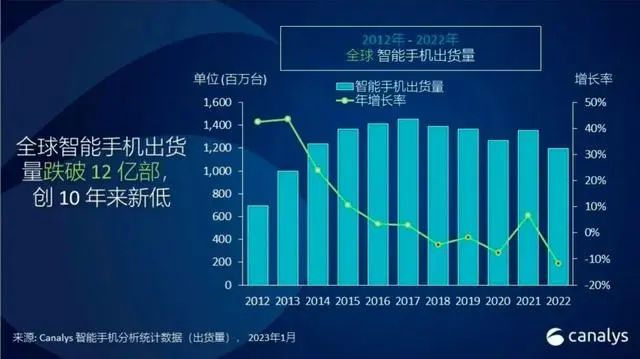
As mentioned above, Xiaomi is also in a growth crisis. In 2022, Xiaomi's smartphone shipments will decline by 20%, and in 2023, they will decline by 2.6% again. The direct consequence of the decline of smart phones is the two consecutive years of revenue decline in financial reports. The golden age of the smart phone market has gone forever. For Xiaomi, if the smart car is just a "bigger, more complex" IoT device, then car building is a natural choice. In particular, the two "pioneers" of Apple and Huawei have explored the way for it. Apple can give up making cars, can Xiaomi? Apple was able to give up building cars because Apple cars never officially appeared. The cost of silence is relatively low. The investment of 10 billion dollars is only about 1/10 of Apple's annual net profit. More importantly, Apple's revenue and growth have not declined significantly, and Apple's dominance in the high-end mobile phone market is still no match. No matter from the perspective of itself or the market environment, Apple has no urgent need to develop new business. At the moment when Vision Pro has been released and the AI wave has swept through, car building is no longer Apple's top priority. Xiaomi obviously does not have the qualifications of Apple. There is no end in the middle and low end mobile phone market, and the competitors never stop; The high-end market is still in the slow climbing stage, and Xiaomi is far from enjoying its success; Surrounded by overseas market giants, they still have to deal with geopolitical uncertainty at all times. In terms of profitability, Xiaomi and Apple are not at the same level. In fiscal year 2023, Apple's net interest rate reached 25.3%, while last year's Xiaomi's net interest rate was only 11.2%. Xiaomi Automobile is about to come into the market. Lei Jun who gives up and gambles on "all the achievements and reputation accumulated in life" will obviously not be reconciled. 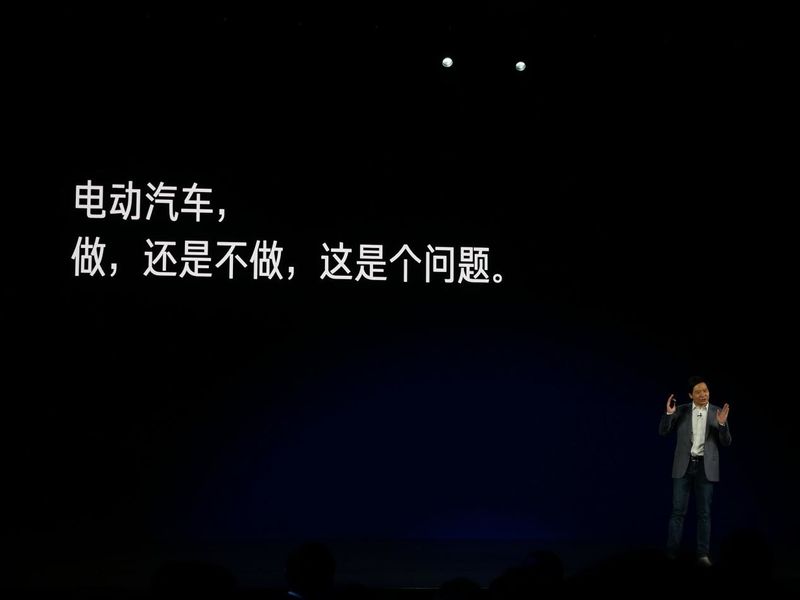
If Apple's car, which is rumored to be priced at $100000, can be launched normally, it will undoubtedly be good news for Xiaomi. First of all, the positioning of Xiaomi Auto will not be so high, and Apple Auto will not compete head-on with Xiaomi Auto. Secondly, the emergence of Apple Cars will greatly enhance the public's acceptance of "intelligent ecological unification", just as Vision Pro has encouraged the AR/VR/MR industry. Now, it's a foregone conclusion that Apple will give up building cars, and Lei Jun has lost a heavyweight target. On the other hand, without the proofing and demonstration of big factories like Apple, it is unknown to what extent users can be moved by the vision of "intelligent ecology". Nowadays, there are not many manufacturers involved in both smart phones and finished vehicles. Meizu has been attributed to Geely, but it is not totally independent like Xiaomi; Huawei has gone the furthest in the mobile phone car machine ecological coordination, but the official clearly stated that "no cars". Just like Xiaomi, Weilai is the only one who makes cars and mobile phones. The first batch of Weilai mobile phones is only 50000, which is not as good as the sales of Xiaomi mobile phones in one day. Its recent situation is "buying cars and giving away mobile phones". Recently, Li Bin, CEO of Weilai, said when facing the question of "Why do electric vehicle manufacturers manufacture mobile phones": "The key is that Huawei and Xiaomi are manufacturing cars. This is the first defense strategy of Weilai." The logic of Weilai's mobile phone manufacturing is similar to that of Xiaomi. It is not only because of the experience of predecessors, but also because of the precaution against competitors. Xiaomi, who sells cars, obviously doesn't want to end up selling cellphones. In any case, there is no pathfinder for Xiaomi Auto, and Lei Jun has to go by himself for the rest of glory and danger. | 
